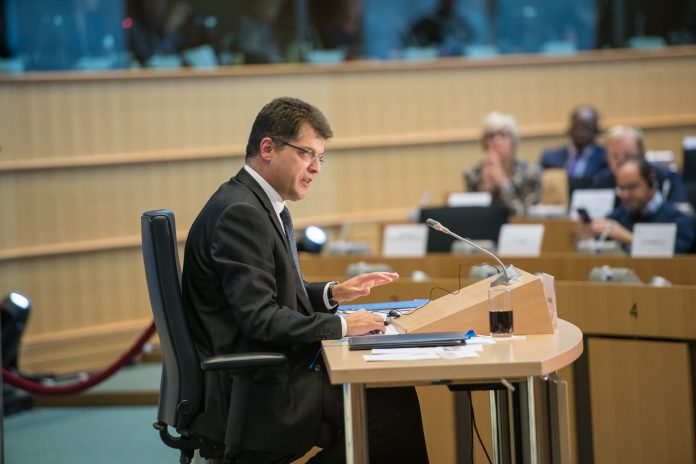The Development Committee questioned the Slovene Commission candidate for the crisis management portfolio.
Political groups’ coordinators from the committees will meet shortly after the hearing to assess, within 24 hours, the performance of the Slovenian Commissioner-designate. The Environment committee was associated to this hearing.
Disaster risk reduction, humanitarian aid and EU values
During his introductory speech, Mr. Lenarčič said that humanitarian aid is central to the European Union’s response to crises and disasters, as it stabilises host societies, displays the European Union’s leadership, and builds coalitions based on European values. His priorities include strengthening the EU’s response capacities, stepping up risk reduction, and integrating humanitarian aid, development and environmental policies. He added that this will ensure efficient delivery of aid, particularly to vulnerable groups, including children, girls and women.
MEPs put forward questions on how the commissioner-designate would ensure that humanitarian aid is driven by the EU’s values and the principle of impartiality rather than foreign policy objectives. They also asked about measures to protect civilians and the security of aid workers in complex crises as well as about efficient responses to national and man-made disasters and climate change.
Members also asked how he intends to ensure that the European Commission delivers on the commitments made at the 2016 World Humanitarian Summit.
EPP: Lenarčič must prove his devotion in the coming months
“Commissioner-designate Janez Lenarčič has shown competence regarding his portfolio and specifically in the field of migration and cooperation with the local civil society. Now, Lenarčič must prove his devotion in the coming months”, said EPP Group Spokesman in the European Parliament’s Development Committee György Hölvényi MEP, reflecting on Lenarčič’s performance at the EP hearing in his capacity as Commissioner-designate for Crisis Management.
“The ongoing humanitarian crises around the globe will require a sustainable solution, and it is for this reason that cooperation with local actors and faith-based organisations will be essential. European citizens saw for themselves the large migration flows of recent years, and have come to understand the way humanitarian crises, even in distant regions, influence their own lives”, he continued. Hölvényi said that the EPP Group strongly believes that with effective crisis management, we can manage migration flows and we can ensure the right of people to stay in their homeland. In 2014, the very active EPP Commissioner Christos Stylianides was among the first international officials to visit the Ebola-affected regions in West Africa. We expect the same devotion from Mr Lenarčič in expressing the EU’s global responsibility”, he concluded.
Based on the committees’ recommendations, the Conference of Presidents will decide on 17 October if Parliament has received sufficient information to declare the hearing process closed. If so, the plenary will vote on whether or not to elect the Commission as a whole on 23 October, in Strasbourg.

